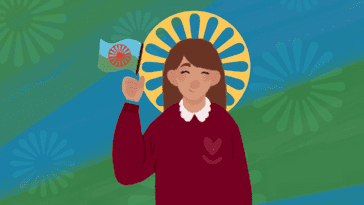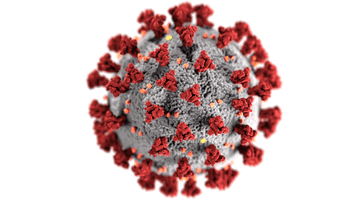
Learn More: Bullying
Being bullied is a terrible and often traumatic experience, sadly all too common in schools across the UK. This is particularly true for Romani (Gypsy), Roma, and Irish Traveller children, who face exceptionally high levels of bullying in educational settings. Below, you will find a wealth of helpful information to help you recognise the signs of someone being bullied and learn how to provide effective support.
Introduction
In this section, bullying will be broken down to help you understand what constitutes bullying and what does not. Bullying isn’t always clear or obvious; it can manifest in various ways. The ability to identify a child who is being bullied could literally save their life. Given that bullying against Romani (Gypsy), Roma, and Irish Traveller children in schools is both prevalent and often relentless, it is crucial to recognise the specific forms of bullying and racial discrimination they face in order to provide appropriate support.
What sub-sections are available on this page?
-
-
- What is Bullying?
- What is Cyberbullying?
- Signs of Bullying
- Effects of Bullying
- Anti-Bullying In School
-
What is Bullying?
Bullying is generally defined as behaviour that is:
Repeated: It occurs more than once, creating a pattern of harmful behaviour.
Intentional: It is aimed at hurting someone, either physically or emotionally.
Targeted: It often focuses on specific groups, such as those distinguished by race, religion, gender, or sexual orientation.
Bullying can manifest in various forms, including:
- Physical Bullying: Actions such as hitting, slapping, or pushing.
- Verbal Bullying: Name-calling, gossiping, or making threats.
- Non-Verbal Abuse: Communication through hand signs or text messages.
- Emotional Abuse: Intimidation, humiliation, or threats.
- Exclusion: Ignoring or isolating someone from a group.
- Undermining: Constant criticism or spreading rumours.
- Manipulation: Controlling or coercing someone.
- Silent or Abusive Calls: Making hoax or harassing phone calls.
Additionally, certain types of bullying are classified as hate crimes, including:
- Racial, Sexual, Transphobic, or Homophobic Bullying: Targeting individuals based on their identity or orientation.
- Disability-related Bullying: Bullying someone because they have a disability.
Currently, there is no legal definition of bullying; however, schools are required to have their own policies and procedures to address bullying and outline how they will manage incidents. It is essential for schools to adhere to their policies, so it is important for parents and guardians to review the relevant bullying policy and hold the school accountable for implementing it.
Click here to see a typical template of what you can expect an Anti-Bullying Policy to look like.
What is Cyberbullying?
Cyberbullying refers to bullying that occurs online. Unlike traditional bullying, which may be limited to specific locations, online bullying can follow a child wherever they go, impacting them through social networks, gaming platforms, and mobile devices.
Cyberbullying can take various forms, including:
- Sending Threatening or Abusive Text Messages: Harassment via SMS or messaging apps.
- Creating and Sharing Embarrassing Images or Videos: Disseminating content intended to shame or humiliate someone.
- Trolling: Posting menacing or distressing messages on social networks, chat rooms, or online games.
- Excluding Children: Deliberately leaving individuals out of online games, activities, or social groups.
- Shaming Someone Online: Publicly humiliating or disparaging a person on the internet.
- Setting Up Hate Sites or Groups: Establishing online platforms that target and defame a specific child.
- Encouraging Self-Harm: Promoting harmful behaviours among peers.
- Abusive Polls: Conducting polls that solicit negative votes against someone.
- Creating Fake Accounts: Hijacking or impersonating someone’s identity online to cause embarrassment or trouble.
- Sending Explicit Messages: Engaging in sexting or sending inappropriate content.
- Pressuring Children: Coercing young people into sending sexual images or participating in sexual conversations.
The pervasive nature of cyberbullying makes it crucial for parents, educators, and peers to be vigilant and supportive in combating this issue.
Signs of Bullying
No single sign can definitively indicate that your child is being bullied, but you should be attentive to the following warning signs:
- Lost or Damaged Belongings: Frequently misplaced or broken items may suggest bullying.
- Physical Injuries: Unexplained bruises or other injuries can be a red flag.
- Fear of Attending School: If your child expresses anxiety about going to school, frequently claims to feel “ill,” or skips school altogether, this could indicate a problem.
- Declining Academic Performance: A noticeable drop in grades or lack of participation in school activities may be a sign of distress.
- Requests for or Theft of Money: Asking for money or stealing to give to someone who is bullying them is a concerning behaviour.
- Changes in Behaviour: Increased nervousness, a loss of confidence, or becoming distressed and withdrawn can indicate emotional distress.
- Eating or Sleeping Issues: Changes in appetite or sleep patterns may reflect stress or anxiety related to bullying.
- Bullying Others: Sometimes, a child who is bullied may turn to bullying others as a coping mechanism.
If you notice these signs, it’s essential to approach your child with understanding and support, encouraging open communication about their experiences.
Effects of Bullying
The effects of bullying can extend well into adulthood, with severe consequences. In the most tragic cases, bullying has led children and young people to self-harm or even take their own lives.
Children who are bullied may experience a range of negative outcomes, including:
- Mental Health Issues: Increased risk of developing conditions such as depression and anxiety.
- Limited Friendships: Difficulty forming and maintaining friendships.
- Peer Rejection: Struggles to fit in or be accepted by their peers.
- Distrust of Others: Becoming wary and suspicious of others, impacting their ability to form new relationships.
- Academic Challenges: Difficulty adjusting to school environments, leading to poor academic performance.
It’s important to note that all children affected by bullying—whether they are victims, perpetrators, or bystanders—can experience harm. The impacts can be profound and lasting, highlighting the need for effective intervention and support systems within schools and communities.
Anti-Bullying in Schools
All schools should have an anti-bullying policy in place. This document outlines the school’s approach to bullying, detailing the measures agreed upon to prevent bullying from occurring and the procedures to follow when it does happen. In some cases, the anti-bullying policy may be included in whole or in part within a Behaviour Policy.
Having a clear policy is essential for holding schools accountable for their actions. If you believe that your child has not received adequate support from the school in instances of bullying, or if you feel that the school’s policy does not provide sufficient protection for your child, please seek assistance by contacting our Community Advocacy Caseworker on 07908 433413


